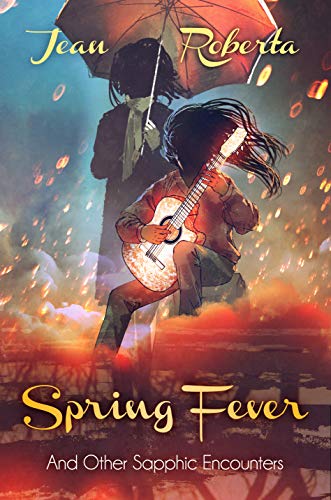June is Pride Month throughout North America and much of Europe. This is when the Lesbian/Gay/Transgender/Bisexual/2-Spirit/Non-binary community commemorates several hot nights in June 1969 when a sketchy gay bar (and they were all considered sketchy then) in New York City, the Stonewall Inn, was raided by the police. This was a fairly regular event in those days, but this time, the bar regulars resisted arrest and fought back. The “Stonewall Riots,” as they came to be called, are now considered the trigger that started the “gay rights”movement.
My Chilean-born spouse and I watched the rainbow flag being raised at the legislature of the province of Saskatchewan for Pride Month, and we also watched a similar flag-raising in front of the city hall of Regina, the small capital city where we live. We rode on a float in our local Pride parade. I posted numerous photos to Facebook under my full name, Jean Roberta Hillabold.
After a ten-day “Pride Week” had ended in Regina, we were passengers in our friend’s car when four of us went to Saskatoon, the other small city or large town in Saskatchewan, for THEIR Pride parade. Although Regina and Saskatoon have traditionally been rival cities, the organizing committees that plan Pride Weeks in both places always arrange to schedule them one after the other so that anyone who likes to travel can enjoy at least two weeks of Pride.
However, we weren’t all going to Saskatoon so we could party for another week. We were bringing a gay refugee to the nearest office of the government of Canada where refugees need to apply for official status, and permission to stay in Canada indefinitely.
Ramon, as I’ll call him, is from El Salvador. He just turned 28 during Pride Week in Regina. He says he finished secondary school in his country, but my Spanish-speaking spouse doubts it, based on the things he says and the way he says them. We first met Ramon several months ago, when he was brought to Regina by an international development organization. He told us he was afraid for his life, but felt he had to go back. Since then, he has kept in touch with my spouse Mirtha by telefono and correo electronico (email).
About two weeks ago, Ramon sounded desperate, so we bought him a round-trip plane ticket and arranged for him to be a visiting speaker at a Pride Week event, with Mirtha as translator. This was his official reason for entering Canada.
Ramon has been in our guest bedroom ever since, and we hope we can help him start a new life here. He told us that his own father threatened to kill him, and an American woman hid him in her house for six months because it was no longer safe for him to go to his paid job for a Salvadorean organization that educates people about AIDS. (As far as we know, Ramon is healthy.) Apparently his American friend thought he should stay in his country and fight the macho, Catholic homophobia. Mirtha and I believe that live activists, even those in exile, can do more good than dead ones.
Little by little, things are falling into place. We discovered that the friend who drove us to Saskatoon has experience in helping refugees navigate the system. A local “affirming” (queer-accepting) church has offered help. Someone already offered Ramon a job, which he can’t legally accept until he has legal permission to work in Canada. On that note, I recently got a nice raise from the university where I teach, so Mirtha and I have no problem supporting Ramon. I need to work on my Spanish, and having to converse with Ramon is very motivating.
Now that Pride Month celebrations have become huge, corporate-sponsored tourist attractions in the U.S. and Canada, it’s easy to forget how dangerous it is in many countries to be anything other than heterosexual and monogamous, preferably married with children.
I often wish that Mirtha and I could afford to rescue all the people who are persecuted for being any shade of queer, for marrying against their parents’ wishes, for having sex lives that aren’t considered acceptable in their homeland. For women in extremely male-dominated countries, any kind of sexual experience is likely to damage their reputations beyond repair, and make them targets of violence.
If everyone who can afford to host one refugee of sexually-based persecution would do so, this would relieve some of the pressure at national borders. Of course, conservative sexual values don’t account for all the human suffering that drives people into exile, but it does account for a lot. Do you think that corrupt military regimes and horrifying violations of human rights flourish in countries where women have considerable political power because they can lead independent lives without being condemned as whores? (Time will tell whether the gathering political resistance of American women will overturn the current reign of the right wing in the U.S.)
I’m celebrating something else this month: the release of my latest collection of lesbian short stories, Spring Fever and Other Sapphic Encounters. Most of these fourteen stories first appeared in various romantic and erotic anthologies, but some are virgins, never seen in public before. So far, this book is only available for Kindle, but I hope it can eventually appear in other formats, possibly including paper.
Here is the link: https://www.amazon.com/dp/B07T91FCFC/





